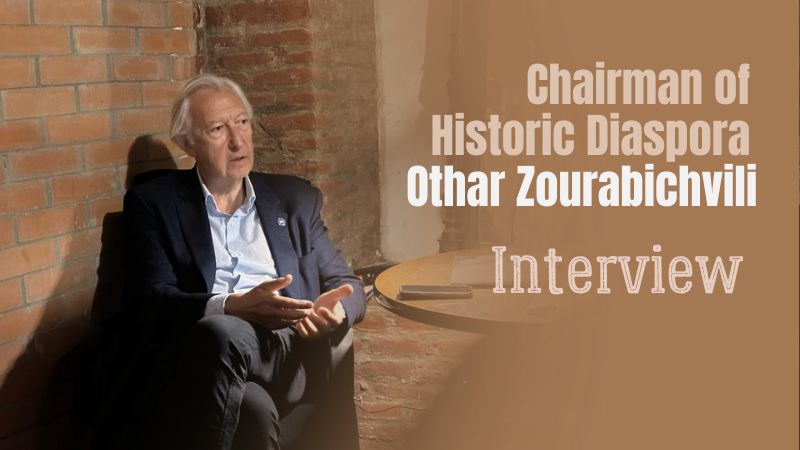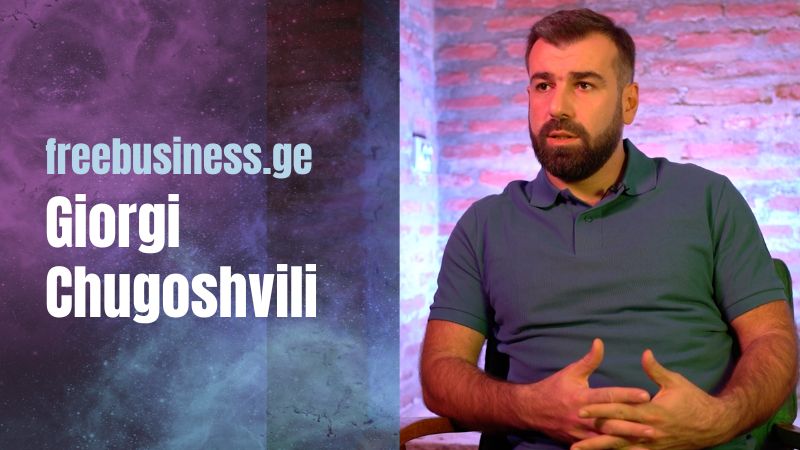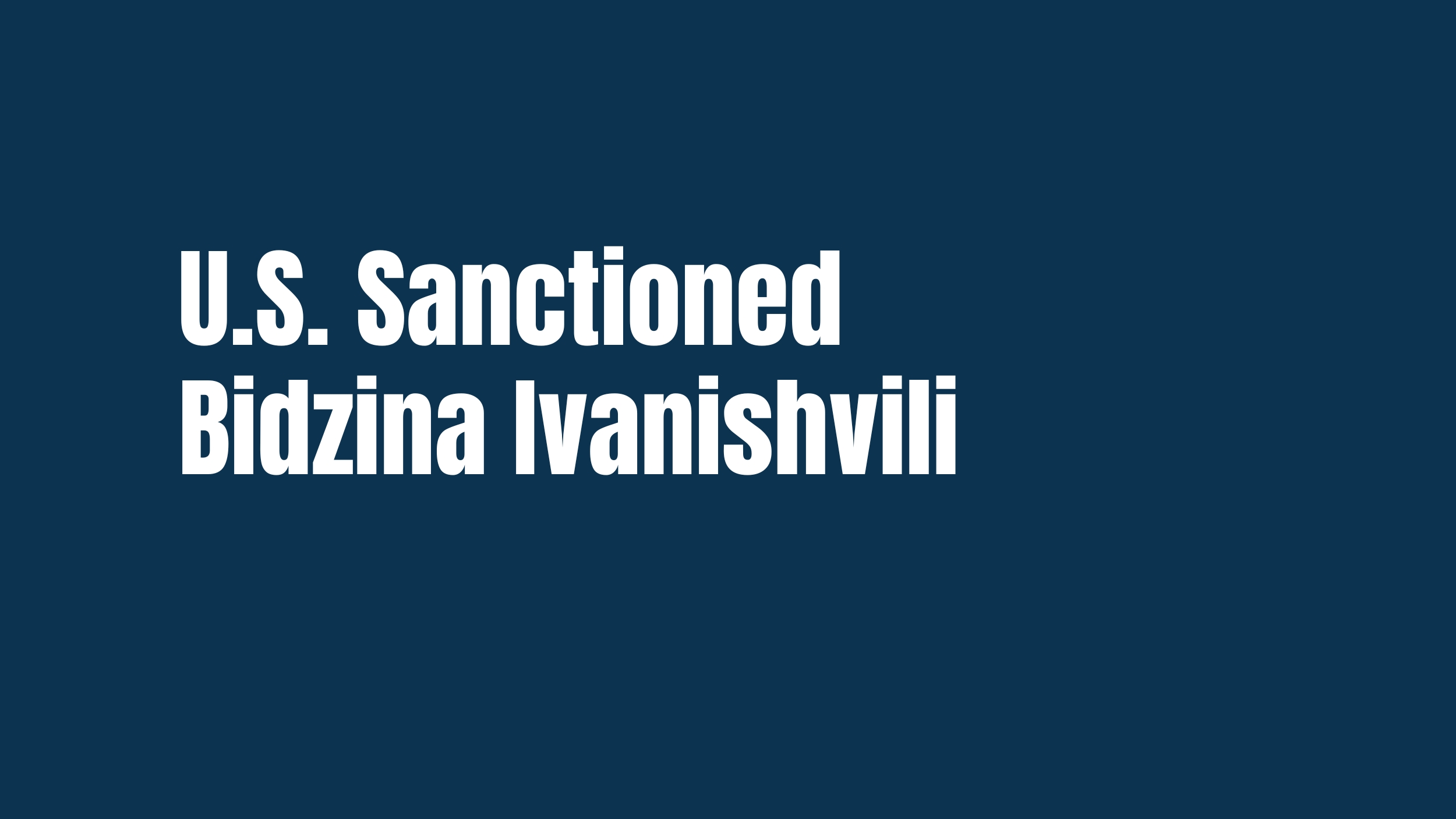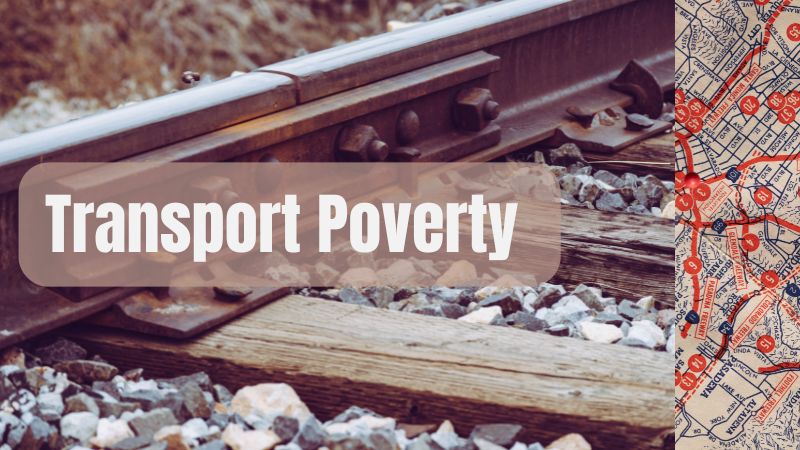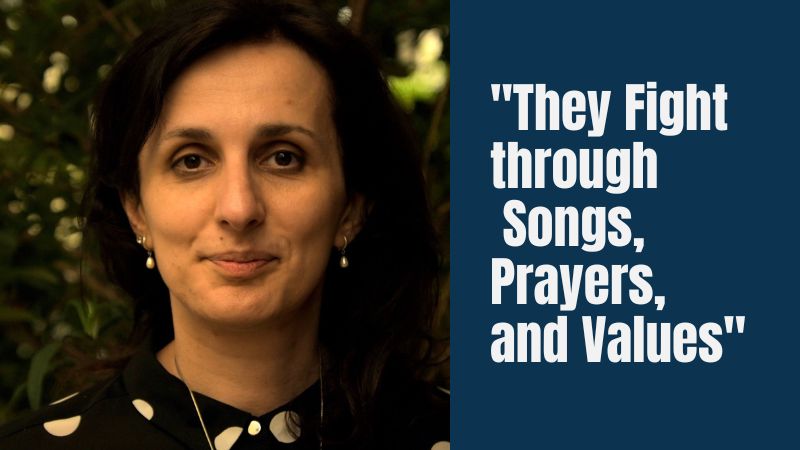As the crucial elections approach, Maisi.News spoke with Othar Zourabichvili, head of the historic Georgian community in France and leader of the diaspora initiative „1Mokalake1Archevani“ (1 Citizen 1 Vote). This initiative, along with the citizens’ group “Daitsavi,” is helping voters reach polling stations on election day to protect citizens’ – including emigrants’ – voting rights.
Othar, the pivotal election day – October 26 – is approaching. This year, an unprecedented number of emigrants are participating. According to the Central Election Commission (CEC), 95’910 voters are registered in special lists for polling stations abroad.
“In reality, this number is much higher. About a million Georgian citizens live abroad, of whom at least 500’000 want to participate. In 2020, only 12’000 voters participated, which was a very small number. Based on CEC data, about 100’000 are registered today. This is a significant change, thanks to the emigrants, not the government. The government has done nothing for these people; on the contrary, every attempt is made to make citizens in emigration lose all interest in Georgia. The government thinks Georgians abroad are only concerned with sending money home and entertainment. Take my family – we emigrated a century ago but haven’t lost the language. We make mistakes when speaking, but we’ve preserved it. Elections are a means for emigrants to stay involved in Georgia’s life. When only 12’000 out of a million emigrants participated in elections over these years, it means we’ve lost a lot.”
67 polling stations will open abroad. Emigrants say these stations are quite crowded and insufficient. Also, emigrants won’t use electronic voting. In this context, what environment do you expect on the election day?
“Attempts at fraud can’t be ruled out. During the pre-election period, there were frequent cases of citizens registering for consular records but not finding themselves on the voters’ lists submitted to the CEC. This is one attempt at fraud. As for the stations, very few are open – 3-4 in the largest countries, and they’re so far from where citizens live that they’ll have to travel 12-13 hours in one day to reach them. Another problem is the crowding of stations, with two stations in one building. When 3’000 are registered at one station, and another 3’000 on another floor in the same space, it’s impossible for stations to process this number without attempts at fraud.”
Long-distance travel also creates additional problems. I understand that your initiative „1Mokalake1Archevani“ and the civil group “Daitsavi” {Defend} have set up a kind of civil “passenger’s fund” to help ease transportation issues for emigrants.
“We created one such fund in France for emigrants’ travel to polling stations, and another here in Georgia for citizens traveling from Tbilisi to other cities, which is important for protecting their voting rights. Most of the donated money comes from emigrants, which we use for transportation. In France, for example, some stations are very far from Paris, and time is limited. So we’ve set up routes from Strasbourg, Nantes, which is closer to Nice than Paris, which requires a 9-10 hour journey. The main thing is that everyone understands what a crucial period this is. Today, we’re in a situation where Georgia’s fate could change dramatically. We must decide – do we stay on the path to Europe or go towards Russia? Everyone has already realized what kind of choice they need to make if they want Georgia to continue moving towards Europe.”
A few days ago, the EU Ambassador said that an additional $121 million in financial aid to Georgia has been suspended, adding that if the Georgian government doesn’t change course, Georgia will lose even more. What do you think such statements mean for voters?
“You know, Europe is protecting its interests when it sees a country going in a different direction. Of course, at such times, finances and aid are lost. However, they also tell us that if Georgia returns to its chosen path, the EU’s approaches will change immediately. If we take the position we held before, support and all funding will return, and we’ll go even further, with new agreements emerging, which is the key to our country’s development.”
The EU’s 9 recommendations, necessary for Georgia’s EU membership, reflect Georgia’s constitution and are based on values of justice and democracy. This, in turn, is the legal legacy of the 1921 constitution of Georgia. As President of the historical Georgian diaspora, how important is EU integration for preserving Georgia’s legal heritage?
“To answer this question, I’ll give a good example that I think explains everything. I represent Georgians who emigrated a century ago. Did we lose Georgian values? We preserved the Georgian language and all Georgian principles as best we could. Moreover, my son, who is the fourth generation born abroad, returned to Georgia, married here, and lives here. My grandchild is growing up in Georgia. We Georgians don’t lose anything. Historically, there has always been equality between women and men in Georgia. What else does Europe tell us? They also talk about equality, right? The principles are identical. Europe supports this talk with appropriate legislation and acts to better protect human rights and the principle of equality.”
Security and peace are particularly important issues for Georgian voters. If you look at the example of Europe – there hasn’t been a war in it since the creation of the EU, for several decades. What would you say to citizens about the EU as a prerequisite for security and peace?
“I would advise them to look at the relationship between Germans and French. World War II is not too distant in the past. Today, all this is forgotten, and the two countries have moved to such a stage of cooperation and friendship where they have daily political and economic relations. What better example could there be?! This gives us the prerequisite to peacefully regulate relations with Abkhazians and Ossetians, people in our temporarily occupied territories, with whom we historically had friendship and whose relationship was temporarily severed by the war started by Russian intervention. We can be in European relations with Abkhazians and Ossetians. Europe gives us an example of this.”
In 1921, as a result of Russia’s annexation of Georgia, the parents of Othar Zourabichvili, head of the historic Georgian community in France, and his sister, Georgian President Salome Zourabichvili, found themselves in emigration. However, according to Othar Zourabichvili, their family constantly maintained the Georgian language and Georgian culture. He himself came to Georgia to participate in pro-EU rallies, and for the October 26 parliamentary elections, Othar Zourabichvili will vote in France.
Based on interview by Salome Gogokhia.
